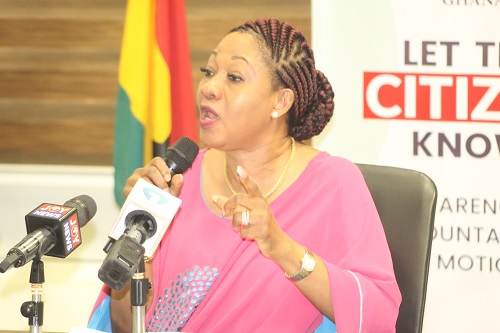
Election 2024: The Electoral Commission’s burden
The success of the upcoming presidential and parliamentary elections is a collective responsibility of all stakeholders – citizens, political parties, law enforcement, media, candidates, and the Electoral Commission (EC).
However, because of its mandate granted by the Constitution, the EC bears a larger portion of the burden. In addition to being solely responsible for conducting and overseeing free and fair elections, this mandate gives the EC independence so that no organisation can unduly influence or interfere with its work.
The November 29 Press Release
In its press release dated November 29, 2024, the Electoral Commission (https://www.facebook.com/photo?fbid=972898571549559&set=pcb.972899128216170) shared two memos and an attachment showing ballot issues identified in some regions and constituencies.
The purpose was to allay public concerns about ballot printing issues in the Volta region which was captured in an EC memo dated November 28 and circulated on social media, not by the EC though.
Here is my synopsis of the information provided by the EC in the press release’s attachment titled Electoral Commission – Faulty and Shortfall of Ballot Papers.
1. Six regions (Western, Greater Accra, Western North, Upper West and Bono East) are affected. The sixth affected region is Volta whose information was not included in the attachment noted above but rather contained in a separate memo. Across the six regions, 18 constituencies are affected.
2. A total of 23 ballot issues are classified under three categories – shortfall, faulty and shortage. A majority (13) are faulty, followed by shortfall (8) and then shortage (2).
3. The following are the ballot issues by type of election: Presidential (12) and Parliamentary (11). The parliamentary elections main ballot issue is shortfall (7), followed by shortage (2) and faulty (2). For presidential elections, the main ballot issue is faulty (11) followed by shortage (1).
4. Ballot booklets are available in quantities of 100, 50, 25 and 10. All quantities are affected by errors as follows: 100 ballot booklet (21); 50 ballot booklet (13); 25 ballot booklet (22); and 10 ballot booklet (48).
Transparency
In an attempt to demonstrate that the issues identified in the Volta region memo were not an isolated case, the commission shared information about other regions as well. Albeit prompt, the EC’s response is concerning.
This disclosure, which was made in the spirit of transparency, has the potential to undermine confidence, trust and electoral integrity; three critical ingredients needed more than ever before for this election.
The content of the press release and attachments raises questions in the minds of citizens, whether fairly or unfairly, about the EC’s preparedness to conduct a free, fair, and error-free election.
This was made evident in the comments section of the EC’s Facebook page where the press release and attachments were shared.
Administrative processes are not immune to errors. Third-party vendors contracted by state institutions to deliver products and services are not immune from errors. However, as I have shared repeatedly from the Afrobarometer survey’s findings, trust in the EC is at an all-time low.
The NCCE’s 2024 election year report “Matter of Concern to the Ghanaian Voter” further showed low confidence in the electoral system.
Under such a climate, whether the EC itself discovered an error or not may be irrelevant to the voter whose primary concern is whether it can trust that an impending election will be free, fair and devoid of errors.
Additionally, “honest” mistakes are difficult to accept whether committed by the EC or those contracted to deliver services for the institution. Furthermore, it could lead to citizens reading cynical motives into these errors.
The EC’s Burden
The EC carries three crucial responsibilities in every election. The first focuses on all the administrative processes that must be put in place in preparation for an election.
The second is ensuring all pre-election administrative processes are executed with effectiveness and efficiency on election day. The third also takes place on election day but occurs after voting ends.
Here, it is the EC’s responsibility to ensure the accurate collation and tallying of all votes so that a declared winner represents the will of the people as expressed at the ballot box.
Every step of the way is a daily exercise of reassuring voters. It is also a balancing act of institutional independence to carry out a constitutional mandate while also managing stakeholder expectations to demonstrate transparency and fairness.
Some days may not turn out perfectly, but the EC needs more perfect than imperfect days.
Can the EC assure Ghanaians that all issues of faulty, shortfall, or shortage of ballot booklets will be resolved by election day?
And God forbid these issues emerge on election day, does it have a contingency plan in place on how to address them? Most importantly, can the EC assure Ghanaians of a free, fair and error-free election?
The writer is the Project Director, Democracy Project.
